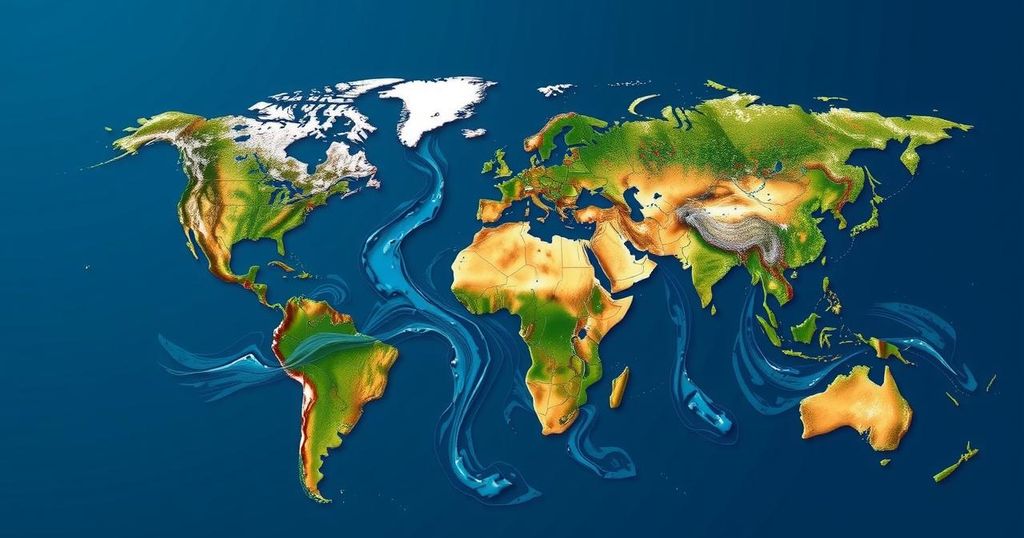The Global Commission on the Economics of Water warns that climate change is destabilizing freshwater supplies, jeopardizing more than half of global food production by 2050. With projections of significant declines in agricultural output and GDP due to diminishing water resources, the report calls for international cooperation and a global approach to water sustainability, emphasizing the importance of redirecting harmful agricultural subsidies towards more sustainable practices.
A recent report, spearheaded by the Global Commission on the Economics of Water (GCEW), highlights the significant threat climate change poses to global freshwater resources and subsequently, food production. It emphasizes a dire need for international collaboration to mitigate the risks that unchecked water crises could impose on the agriculture sector by 2050, where over 50% of the world’s food production could be endangered due to declining freshwater supplies. The GCEW’s findings indicate that nearly three billion individuals live in regions projected to experience shrinking water resources, particularly in densely populated areas such as northwestern India, northeastern China, and parts of southern and eastern Europe. The report warns that if current trends persist, global cereal production could diminish by as much as 23%. The interrelation between rising temperatures and the deterioration of the water cycle creates a precarious situation, leading to the evaporation of “green water” from soils and plants, which is vital for generating a significant portion of global rainfall. This degradation catalyzes a relentless cycle, exacerbating drought conditions and increasing the incidence of wildfires, further aggravating biodiversity loss and soil moisture depletion. The economic ramifications of this crisis are profound, with projections indicating an average GDP decline of 8% for high-income countries and up to 15% for low-income countries by 2050, largely attributable to altered precipitation patterns, elevated temperatures, and diminished freshwater availability. The GCEW advocates for a paradigm shift in how the global community perceives the water cycle, suggesting it should be recognized as a shared global asset necessitating joint protective measures. President Tharman Shanmugaratnam of Singapore, co-chair of the GCEW, emphasized the need for collaborative goals regarding water sustainability, noting that “We are going to have to set common goals for water sustainability.” The report underlines the pressing need to phase out detrimental subsidies in water-intensive sectors and redirect these funds toward sustainable solutions, especially safeguarding disadvantaged communities. Furthermore, Ngozi Okonjo-Iweala, Director-General of the World Trade Organization, highlighted the potential for reallocating significant agricultural subsidies that currently promote excessive water use towards more sustainable practices.
The overarching topic of this report revolves around the escalating water crisis driven by climatic changes, significantly impacting global food production. The interplay between altered rainfall patterns, increased temperatures, and mismanagement of freshwater resources has resulted in an unprecedented strain on the global water cycle. The findings underscore that without proactive international cooperation, food security may be severely compromised in various regions worldwide, given that agriculture heavily relies on the availability of fresh water. This crisis has wider implications on economic stability, especially for countries with limited resources to adapt to these changes.
In summary, the report from the GCEW delineates a severe water crisis exacerbated by climate change, presenting substantial risks to global food production and economic stability. It calls for urgent and coordinated international action towards water sustainability, highlighting the necessity to eradicate harmful practices and subsidies that contribute to overconsumption of water. This comprehensive approach is crucial to ensure future food security and mitigate economic declines across diverse nations.
Original Source: www.rfi.fr






